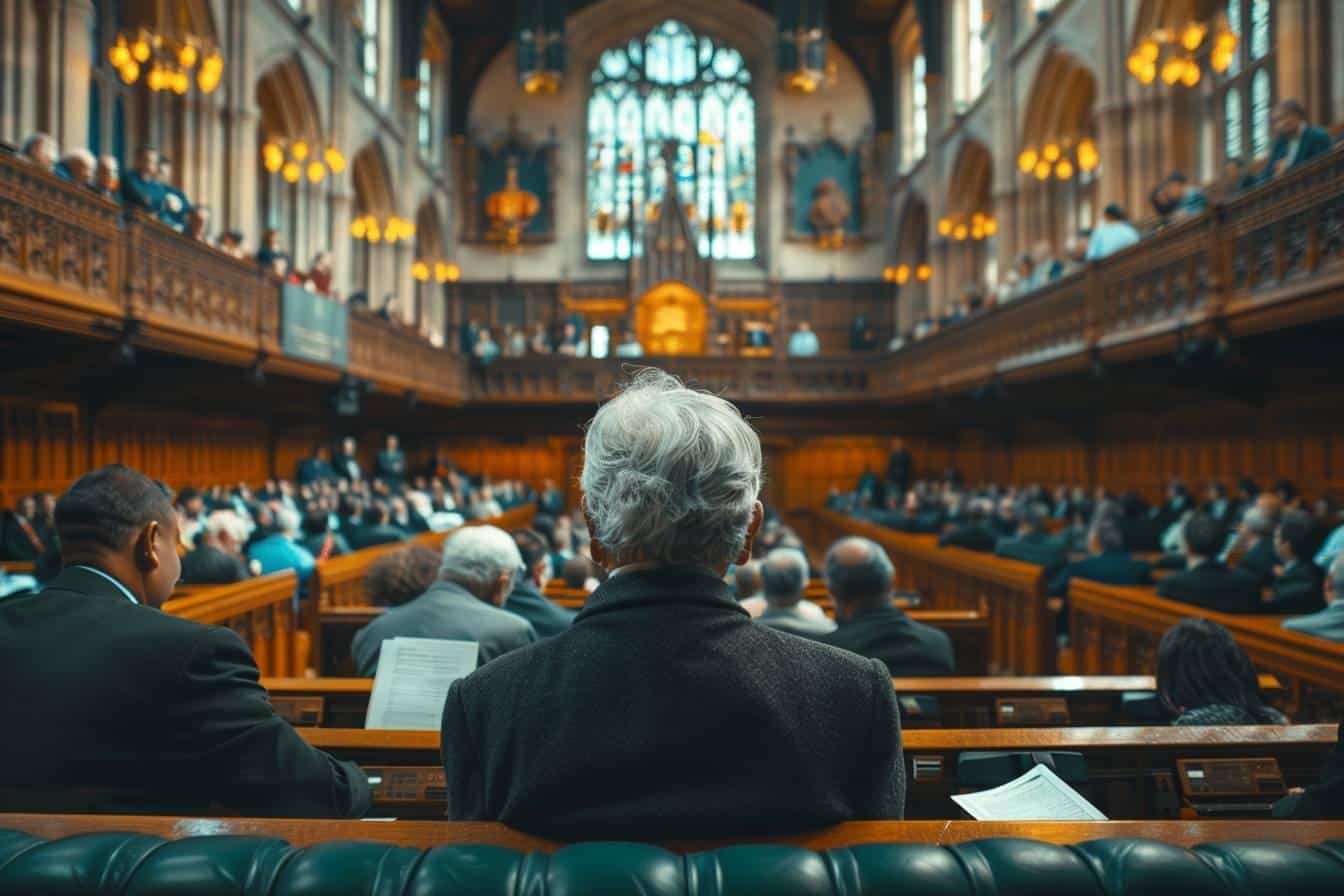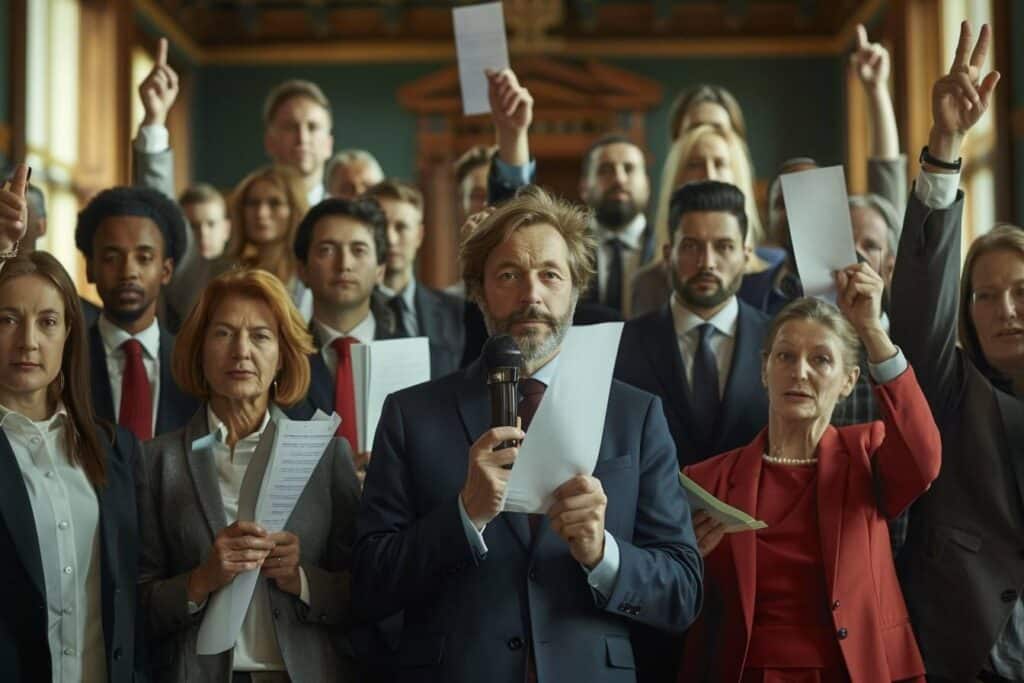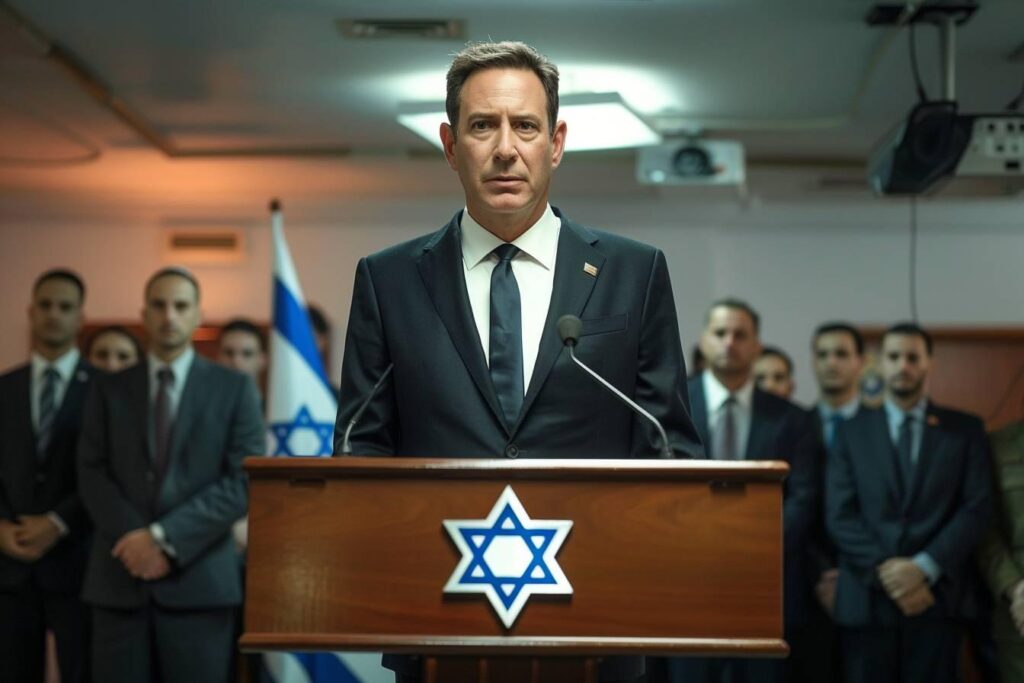Understanding the Complexities: The British Jewish Community’s Perspective on UK-Israel Relations

In the heart of London, just as in numerous communities across the United Kingdom, the recent call by nearly 50 MPs to impose sanctions on Israel has stirred considerable debate. This group, spanning seven political parties, has proposed measures that could significantly reshape UK-Israel relations. For the British Jewish community, these developments are not just political rhetoric; they are deeply personal, touching on issues of identity, international policy, and communal safety.
The Motion and Its Implications
Independent MP Richard Burgon spearheaded the motion demanding that the UK government adhere to a UN General Assembly resolution and an International Court of Justice advisory opinion. These documents urge an end to what they describe as Israel’s illegal occupation of Palestinian territories. The MPs’ proposals include halting military exports to Israel, banning imports from Israeli settlements considered illegal under international law, and revoking the 2030 Roadmap aimed at strengthening UK-Israel ties.
For many in the Jewish community, these suggestions are a cause for concern, raising fears about increasing anti-Israel sentiment, which can sometimes translate into antisemitism. The nuanced views within the community reflect a complex tapestry of thought, influenced by religious, historical, and socio-political factors.
Community Perspectives: Diverse Voices
Rabbi Jonathan Sacks, a prominent figure in London’s Jewish orthodox community, expresses a common concern: “While criticism of Israeli policies is legitimate and healthy in a democratic world, there is a fine line between criticism of Israel and antisemitism. We must ensure that actions do not cross this line and inadvertently foster an environment where antisemitism can flourish.”
Sarah Goldstein, an active member of a progressive synagogue in Manchester, shares a different view: “Israel’s government policies should not be above scrutiny. As Jews, we must also stand for justice and peace. This motion represents a difficult but necessary conversation about Israel’s responsibilities and actions.”
These differing opinions highlight the diversity within the British Jewish community itself—a microcosm of wider global Jewish discourse around Zionism and Israeli politics.
The Impact on Community Relations
The motion has not only political but also social implications. There is concern about how these developments affect Jewish-Muslim relations in the UK. Both communities have been working towards greater understanding and cooperation through various interfaith initiatives.
Imam Abdul Hakim, who has been part of interfaith dialogue groups with Jewish leaders, emphasizes the need for sensitivity: “It’s crucial that in our critique of policies or politics, we do not generalize or stigmatize entire communities. Our focus should remain on constructive dialogue and mutual respect.”
The Role of Media and Education
In times of such heated debate, the role of media and education becomes pivotal in shaping public perception and understanding. Misinformation can lead to polarization, whereas informed discussion can foster solidarity.
Rebecca Levinson, an educational coordinator at a Jewish cultural center, advocates for comprehensive education on these issues: “Educational initiatives that explore the history of Israel-Palestine relations, the complexities of international law and human rights, can help build a more informed citizenry.”
Looking Forward: Paths to Coexistence
Despite the challenges posed by political tensions, there are numerous examples of cooperation and coexistence between Israelis and Palestinians—stories that need more spotlight. Initiatives like joint educational programs, cooperative business ventures, and shared cultural projects highlight paths toward peace often overshadowed by geopolitical strife.
Dr. Miriam Rothstein, a scholar in Middle Eastern studies from Cambridge University notes: “These grassroots efforts are essential in building bridges. They show that beyond the high politics, there are people working every day to find common ground.”
Conclusion: A Call for Balanced Dialogue
The motion proposed by MP Richard Burgon has undoubtedly brought to light several contentious issues that require careful consideration. As discussions unfold within political arenas, community centers, places of worship, and family homes across the UK, it remains imperative for all parties to engage in balanced, informed dialogue.
This is not merely about foreign policy; it’s about the values we uphold as a society and how we navigate the complex intersection of domestic harmony and international justice. For the British Jewish community—and indeed for all stakeholders—the way forward lies through collective engagement in thoughtful conversation that respects diverse perspectives while striving for peace and understanding.
In essence, as we ponder on these intricate matters as a society united in its diversity rather than divided by differences—we grow stronger together.



